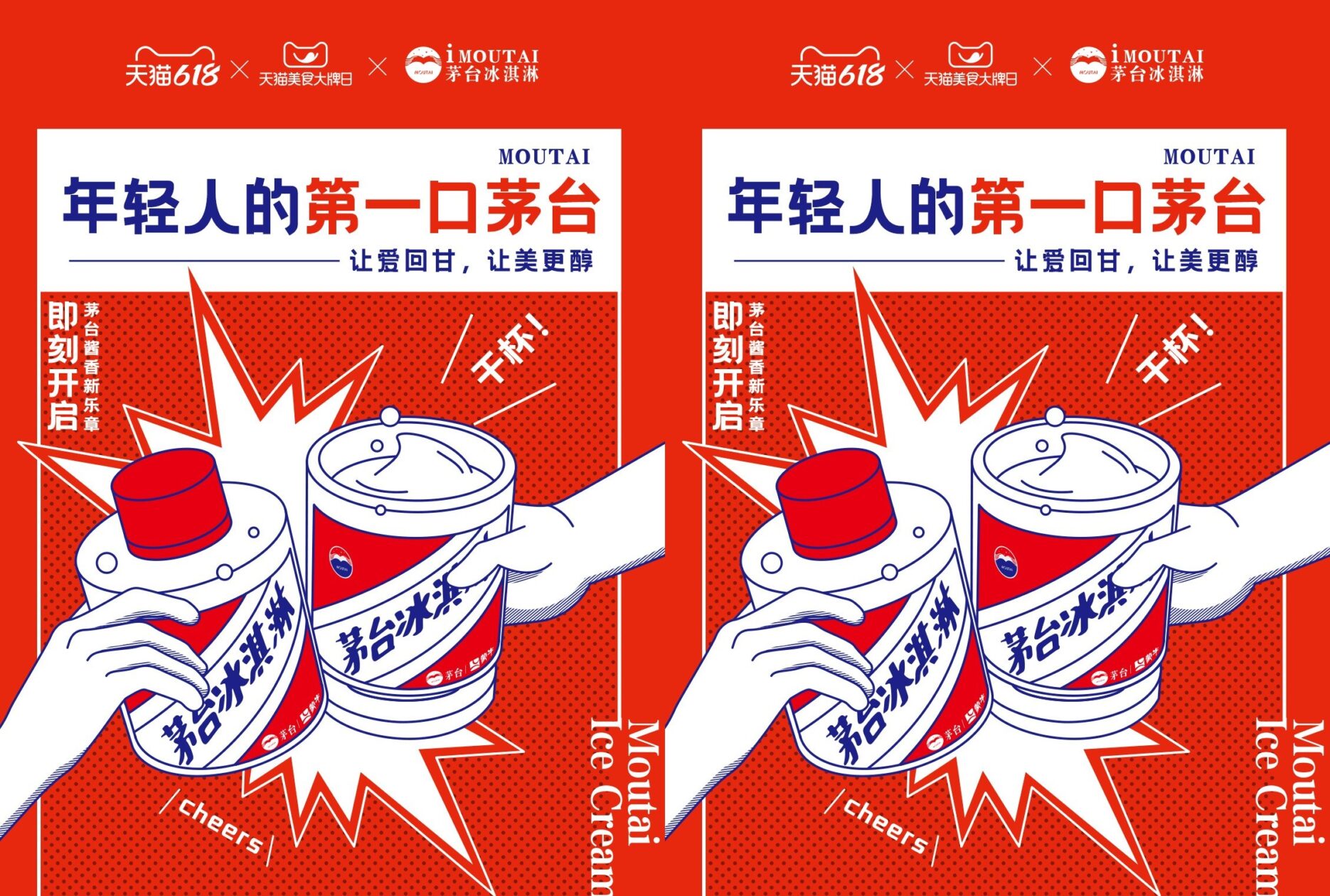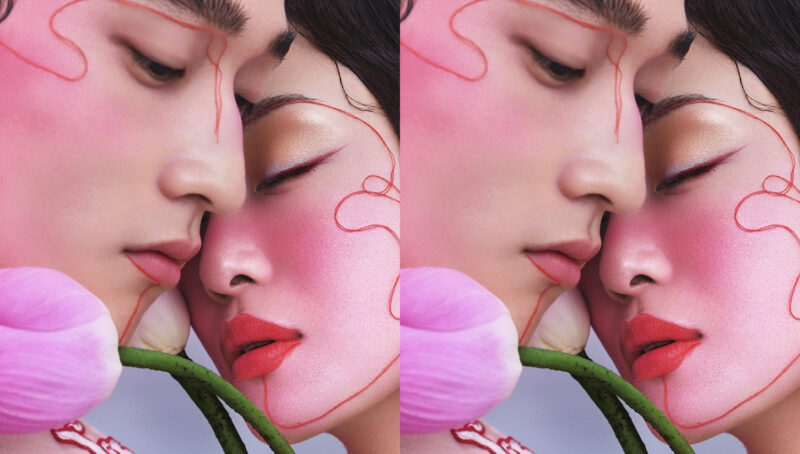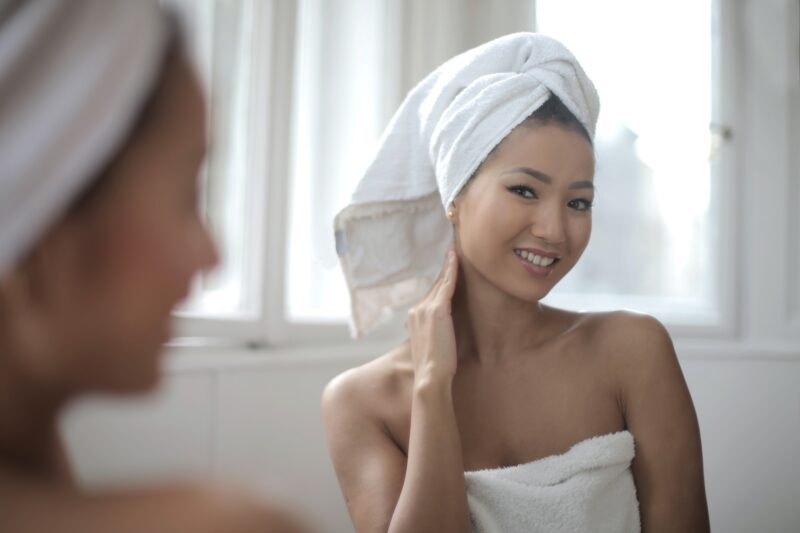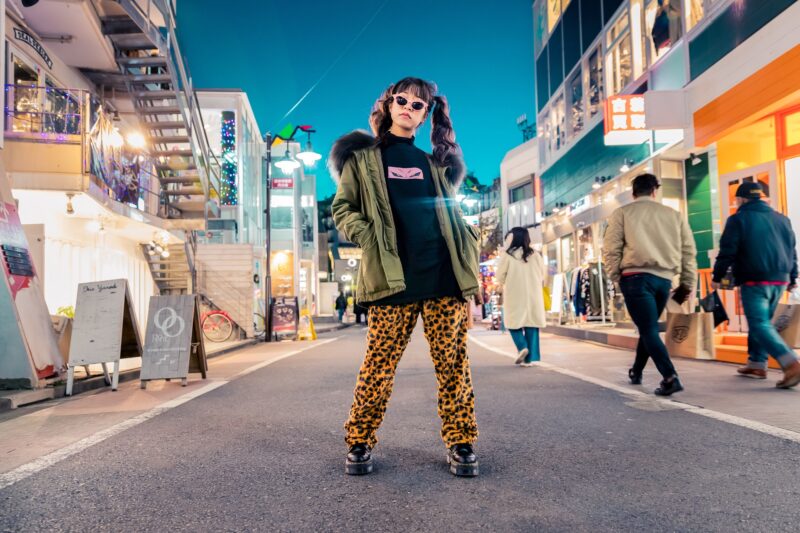Maotai’s marketing momentum
While the buzz surrounding the crossovers between Maotai-Luckin and the subsequent Maotai-Dove are still up in the air, the Chinese liquor giant has taken the decision to halt its collaborative marketing efforts. The announcement came in tandem after Maotai unveiled a new co-branded, wine-filled chocolate with American sweet treat maker Dove on 16 September.
The decision has been interpreted by some as “quit while you are ahead”, referring to the immediate hit created by those new drops earlier this month. While the co-branded “liquor latte” with Chinese coffee chain Luckin clocked record daily sales of over 5 million cups, generating 100 million RMB (13.69 million USD) in revenue, another buying frenzy soon followed as Maotai struck while the iron was hot, which saw the Maotai-Dove, wine-filled chocolate snapped up upon its release.
The co-branded “liquor latte” clocked record daily sales of over 5 million cups, generating 100 million RMB in revenue.
On the surface, such a collaborative effort could be a win-win for both Maotai and its partners. The decades-old brand is keen to win over the country’s young generations who, unfortunately, do not appreciate the solid-fermented taste that the brand boasts of compared to the older generations. Meanwhile, the “national liquor” with a price tag of thousands of Yuan is deemed as a marketing treasure trove by other brands who intend to enhance its appeal to their young target consumers by offering a “luxurious twist” from Maotai.
Revisiting the crossover sensation
However, while the Maotai-Luckin collaboration undoubtedly proved to be a success, the Maotai-Dove crossover soon raised concerns. Although no official statistics were available at the time of publication, the Maotai-flavoured sweet is reported to have brought about a sale of approximately 350,000 RMB (47,917 USD), according to a Chinese marketing news publisher. This is despite the partnership becoming the talk of the town on social media and the campaign hashtag racking up over 220 million views on China’s microblogging mecca Weibo as of 21 September.
The bigger problem for Maotai lies in the impact of such collaborations on its high-end and exclusive brand image.
This is an unimpressive result compared to that of the former but is believed to be as a result of increased healthy eating habits amongst consumers. As such, high-calorie sugary snacks like chocolate are gradually losing ground with the rise of China’s fitness-conscious generations. This is on top of the fact that the young demographics get bored easily and the formula of such collaborations are essentially the same but with Maotai being a flavour addition.
But the bigger problem for Maotai lies in the impact of such collaborations on its high-end and exclusive brand image. While the Maotai-Dove collaboration dominated the digital discussions, a companion topic titled “Maotai is almost playing itself like cooking wine” soon emerged. Netizens joked that Maotai now serves as a cooking wine which can be added to anything from coffee to sweets, which propelled the hashtag to attract more than 190 million views on Weibo as of 20 September.
Further alarm was sounded when Fliggy – an online travel agency arm under the Chinese conglomerate Alibaba shared a Weibo post on 17 September, promoting a large-bed hotel room in Haitang Bay Sanya priced at 999 RMB (136.77 USD) as part of its offer during the upcoming week-long National Day Holiday (starting from 1 October). Known as the “Solid-fermented large-bed room”, the post (which appears to have since been deleted) invited customers who booked the room to enjoy a package including a bottle of Maotai wine and the 53 degree Feitian Maotai – an expensive signature for 1,499 RMB (205.22 USD) and regarded by many as an investment commodity.
Balancing instant returns and brand identity
Although it later turned out to be a non-official collaboration between Maotai and Fliggy, with the travel agency issuing a statement clarifying that Maotai was not involved and the room in question has since been taken down. The episode serves as a reminder for Maotai with discussions emerging, suggesting that its valuable liquor could be more accessible at a lower price amid the series of Maotai-stamped marketing. This poses a threat to the brand’s luxury positioning and premium brand image where scarcity is king.
92% agreed that this is the right step by Maotai, indicating consumer fatigue towards this marketing practice.
As such, the holdback of the collaborations would be a wise move by Maotai to prevent its brand value from being depressed and retain its high-end brand identity, which is a more treasured asset for businesses in the long run. According to a public opinion poll responded to by over 7,000 as of 25 September, 92% agreed that this is the right step by Maotai, indicating consumer fatigue towards this marketing practice, and so, raising questions as to the effectiveness of similar collaborations in the future.
This, therefore, also provides implications for well-established market players who wish to capture China’s young consumers through collaborative campaigns. Whilst it is a rewarding practice in terms of generating a digital sensation, opening up a new avenue for revenue and extending audience reach, brands with a premium positioning should take extra precautions on the other side of the coin and be aware of short-lived consumer enthusiasm for such activations, as well as assess if those immediate benefits come at the cost of compromising on brands’ recognition in the desired upscale market.









